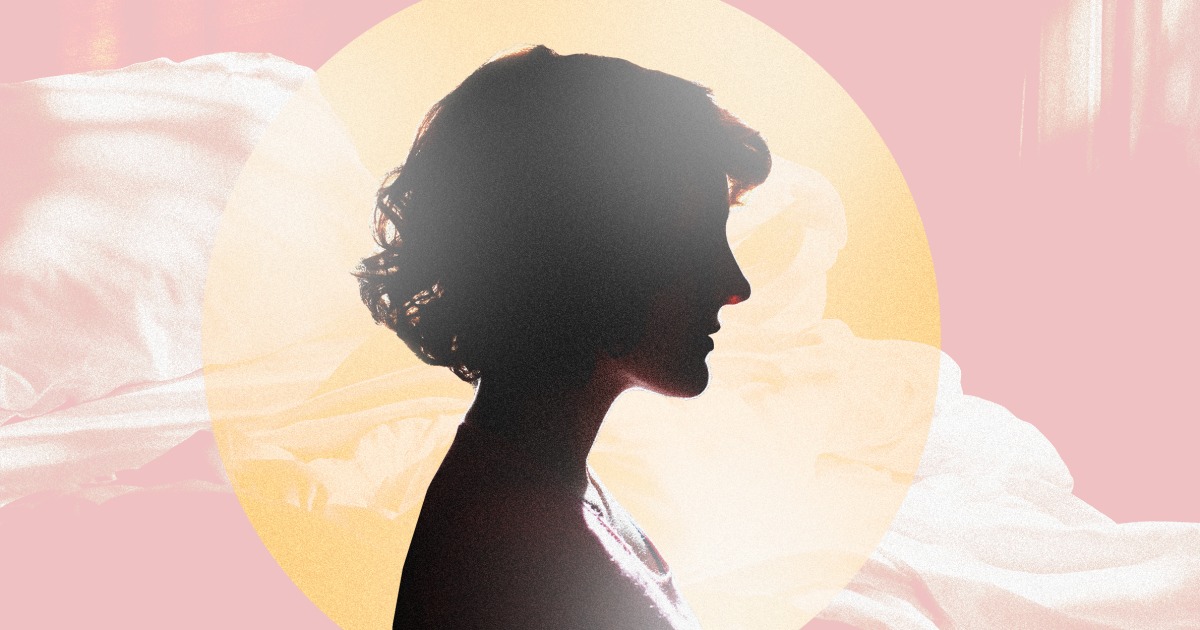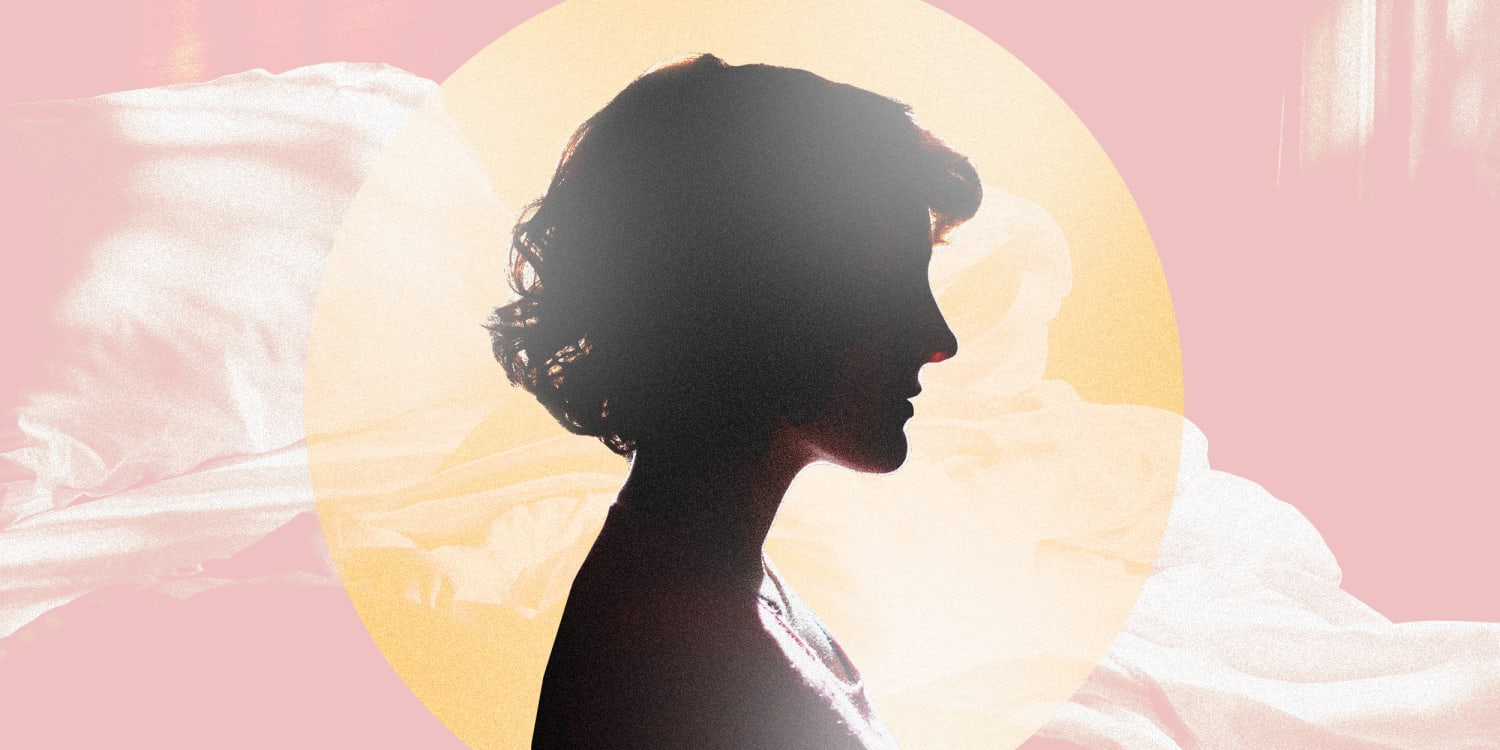
Earlier this month, venturing into my closet in search of something else, I pulled out a short paper I had written in graduate school about Simone de Beauvoir, I knew exactly why I had saved it. It was an artifact of how ridiculous and utterly abnormal I had felt still being a virgin at 22.
I translated a lack of sexual experience that was, in fact, entirely normal into an indictment of my ability to love and be loved.
Beauvoir was a chic French feminist thinker who was brilliant and sexy and unapologetic about openly taking lovers and challenging ideas about women. Holding that one-page handwritten paper in my hands, I clearly remembered the afternoon when, as a first-year Master’s student at Miami University of Ohio, I had stared at the A+ I received thinking, sure I can write all day about women’s power and sexuality, but I’m a weirdo who is probably never going to have sex.
Spoiler: I wound up having sex. But it felt like an impossibility that day.
A few months after I wrote that paper, I met the guy — another student in the program — who would become my first boyfriend, and the world of relationships and intimacy opened up to me. Why it took so long had nothing to do with processing trauma or religious belief or any physical limitation. I was simply a late bloomer — a shy girl who lacked social confidence, until all of a sudden, I had it, and then it seemed like something that shouldn’t have been so difficult.
But it was. And for the longest time, I felt embarrassed — ashamed even — about the lack of dating experience that had me leaving my teen years still a virgin. I wish that I’d understood that, despite what a lot of my favorite TV shows depicted, and how deeply I believed that women should be able to express their sexuality free of stereotypes, I wasn’t late at all. While I can’t rewind time, I can do my part to communicate that reality to more young women (and men) now, particularly the ones who are certain they must be the last virgins on earth.
TheCDC data about average age for virginity loss for heterosexual men and women hasn’t changed much in the last 20 years: 17.6 years old for women and 17.2 years old for men. It’s informative, but also not terribly helpful, because it only represents an average (meaning some lose their virginity much earlier and some much later), and it only tells us about penis-in-vagina sex, which is a narrow view of sexuality.
There is no question, though, that a lot of teens are sexually active, and that even the ones who are not active still need information and tools. So we should absolutely be teaching young people about consent. Be educating young women and men about pregnancy, birth control and sexual transmitted infections. Be ensuring that contraceptives are readily available versus teaching an abstinence-only curriculum, which doesn’t work.
And we should be creating environments where young women don’t feel embarrassed, slut-shamed or judged for having sex; where young people, no matter gender or sexual orientation, are free to discover the awesomeness of sex, without stereotypes or toxic beliefs being piped into their heads. At the end of the day, talking matter-of-factly about sex and bodies with young people is imperative, and I have done that with my own kids.
But I also wonder if in all those conversations, and all those stories that show teenagers and college kids having sex, we don’t talk enough about how it’s neither strange nor shameful to have your first sexual experience well after adolescence. Not everyone in their teens and 20s is having sex — for a variety of reasons. And as articles in The Cut and Refinery 29 have pointed out, while it may feel odd to those who are virgins in college, it’s anything but.
According to a 2019 report from The Guttmacher Institute, an organization working to advance sexual and reproductive health and rights, 65 percent of 18-year-olds have had sexual intercourse. That number jumps quite a bit — to 93 percent — when we get to 25-year-olds. But that still leaves 7 out of every 100 people in their mid-to-late 20s who haven’t had sexual intercourse. The numbers continue to decline, but celibacy into one’s 30s and 40s is not unheard of.
People also don’t tend to have as many sexual partners as popular representations would have us believe. According to the CDC’s National Survey of Family Growth through 2017, the average number of lifetime opposite-sex sexual partners is 4.1 for women and 6.4 for men.
Sadly, it’s also important to keep in mind how many early sexual experiences can be unwilling ones, with one in 9 girls and 1 in 53 boys under the age of 18 experiencing sexual abuse or assault at the hands of an adult.
Another misleading characteristic of the societal conversation around virginity: Its connection to religion. Yes, people who are religious may practice abstinence until marriage. But virginity doesn’t automatically equal religiousness, that someone is “saving” themselves for marriage. And religiosity is not the only valid reason for not having sex.
Going to Catholic high school, I saw the church’s obsession with the idea that sex before marriage was wrong and sinful for what it was — a power play, and a piece of hypocrisy. I wholly rejected those ideas the minute I graduated from my Catholic high school.
My problem wasn’t fear of hell; it was not knowing how to talk to boys, and then to men. It was not being comfortable accepting attention. It was not being interested (much) in drinking or parties or being in the kinds of social situations where people met and mingled. It was living at home during college and not coming out of my shell until I moved away for graduate school.
Perhaps most problematically, I translated a lack of sexual experience that was, in fact, entirely normal into an indictment of my ability to love and be loved. The fear weighed on me, but the shame meant I couldn’t speak of it and get any perspective on it.
In an educational seminar when I was 21, I was supposed to write down something I was stressed about to get some freedom from it. I wrote, “I’m scared that I will never . . .” That’s as far as I got. I was afraid to actually write the words, to put on paper that I feared I’d never fall in love and have sex.
When you think you’re the only one to experience something, you hold it in for so long and develop all kinds of ideas around it that hold you back, make you feel less than or just plain skew your reality.
Thankfully, two-and-a-half decades later, I’m no longer afraid to write down what I think and feel. I published a book about honesty this year where I talked about many of the things that no one wants to talk about. I have learned that when you think you’re the only one to experience something, you hold it in for so long and develop all kinds of ideas around it that hold you back, make you feel less than or just plain skew your reality.
For me, it looked like underestimating myself, and thinking I was socially inept. When in fact, I’m as socially capable as anyone.
Late blooms are just as beautiful as early ones. But they can be lonely as hell. Just know that you are never the only one. You are among many. And so I say this, holding a yellowing A+ paper written by a 22-year-old virgin: I’ve been there, too.
Source: | This article originally belongs to Nbcnews.com









